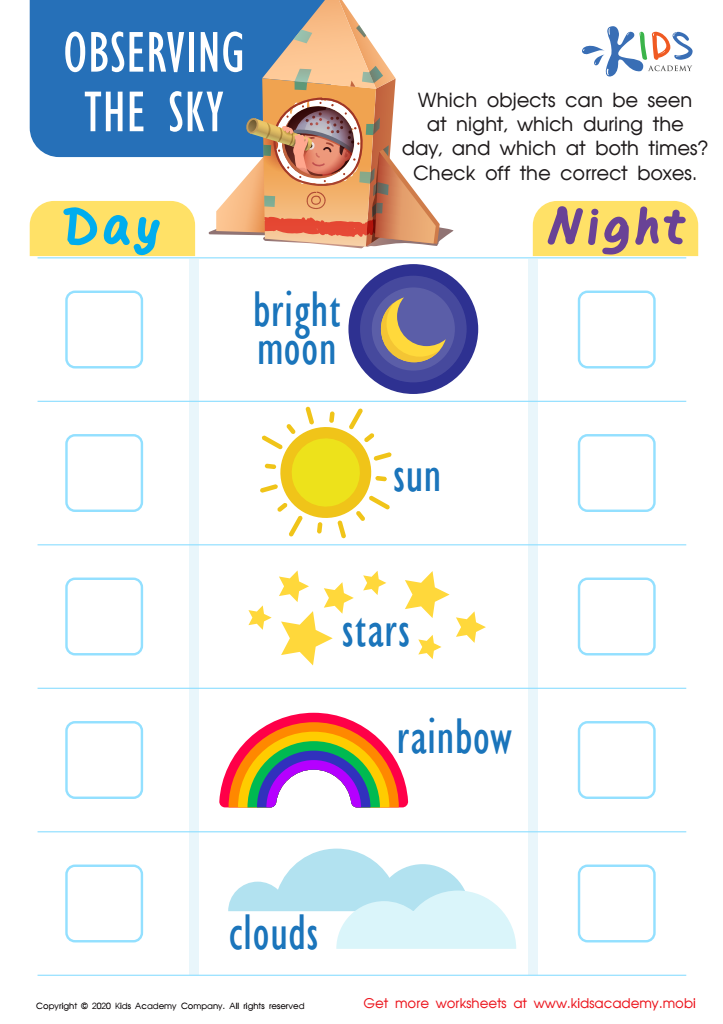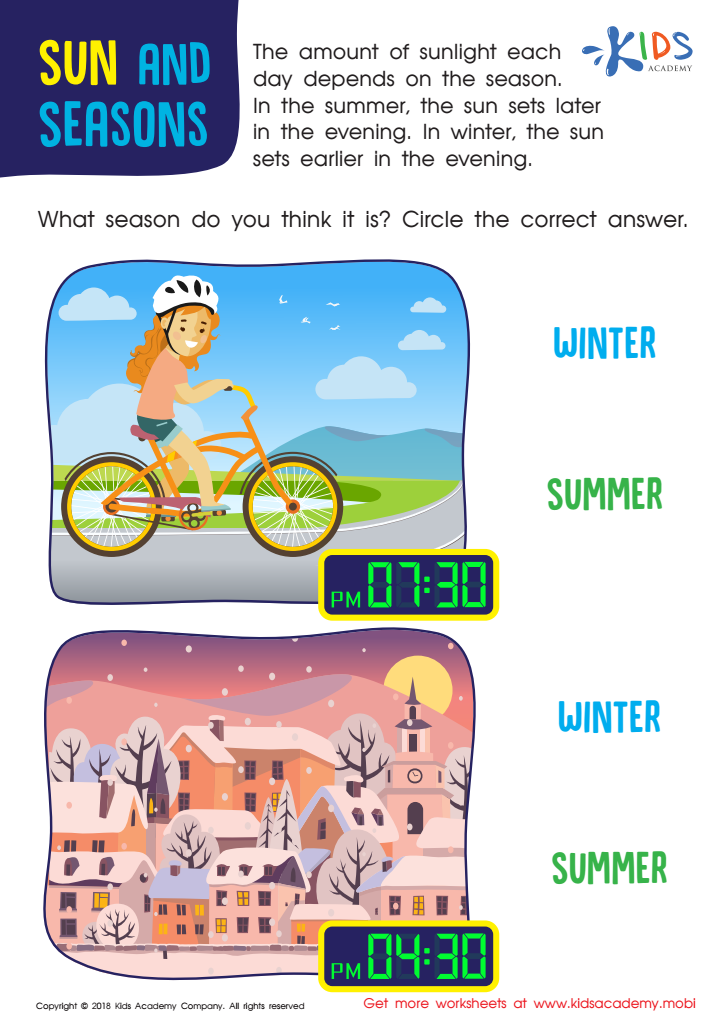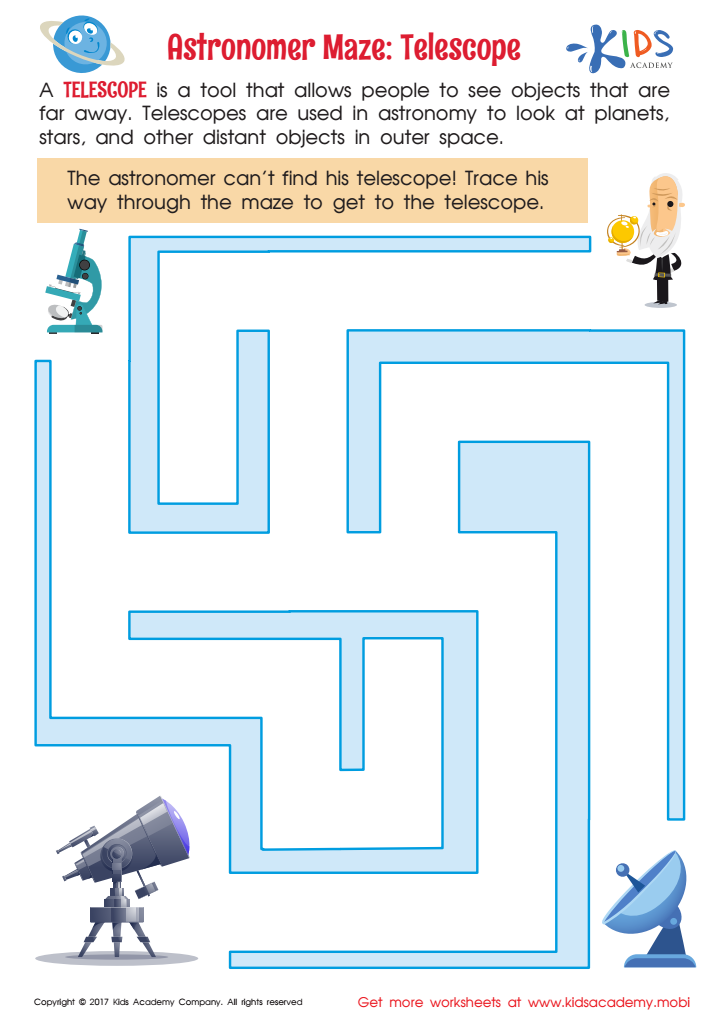Basic astronomy knowledge Worksheets for Ages 3-7
3 filtered results
-
From - To
Introduce young learners to the wonders of the universe with our Basic Astronomy Knowledge Worksheets for Ages 3-7. These engaging and interactive worksheets, designed by educational experts, will help children explore fundamental concepts of astronomy in a fun and age-appropriate manner. Activities include identifying celestial objects, understanding cycles like day and night, and recognizing different phases of the moon. Perfect for curious little minds, our worksheets cater to early grade students and make learning about space an exciting adventure! Start fostering a love of science and discovery in your child today with Kids Academy's enriching resources.


Observing the Sky Worksheet


Sun and Seasons Worksheet


Astronomer Maze: Telescope Worksheet
Introducing basic astronomy knowledge to children ages 3-7 is vitally important for their development and curiosity. Firstly, astronomy skills spark natural curiosity, promoting a lifelong love of learning. Simple concepts about the moon, stars, and planets fascinate children and foster a need to explore and ask questions.
Secondly, learning about space can enhance cognitive and academic skills. Preschoolers enjoy concepts like stars twinkling or the moon's phases, which pave the way for critical thinking and problem-solving. This early exposure, in turn, creates a foundation for more complex scientific principles they’ll encounter later.
Astronomy encourages children to observe and describe their environment. Noticing changes in the sky can develop keen observation skills, a fundamental aspect of early science education. Children also get introduced to numbers and shapes, fostering early mathematical concepts as they count stars or learn about round planets.
Additionally, soliciting discussions about our universe can stimulate the child’s imagination, leading to vibrant creativity and storytelling. These conversations can be opportunities for meaningful family bonding and quality time. Lastly, understanding that we are part of a larger universe cultivates a sense of wonder and a more harmonious Earth view, inspiring them to appreciate nature and take care of our planet. Overall, sharing basic astronomy with young children fosters multifaceted development beneficial for their future.

 Assign to the classroom
Assign to the classroom










